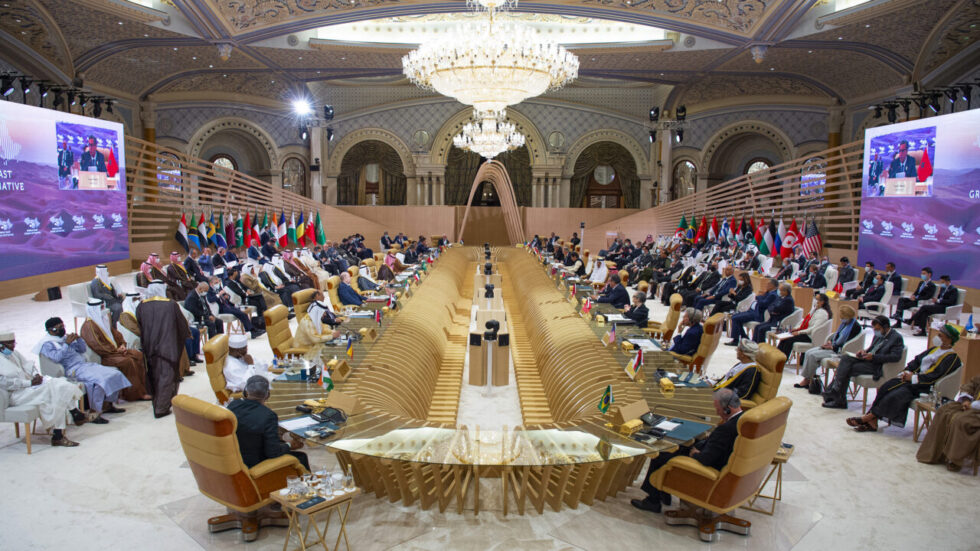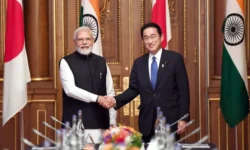
As the global energy landscape undergoes a rapid transformation, the European Union (EU) is pivoting toward new alliances—and at the center of its attention are the Gulf countries. With climate commitments intensifying and geopolitical tensions impacting traditional supply chains, the EU’s move to deepen ties with the Gulf Cooperation Council (GCC) states marks a strategic recalibration in its energy and economic policies.
This expanding partnership is not just about oil and gas; it is also a forward-looking endeavor involving renewable energy, digital innovation, investment, and geopolitics. The shift could redefine global energy trade routes and reshape economic interdependencies between Europe and the Middle East.
Strategic Realignment in a Changing World
The Russia-Ukraine conflict has exposed the EU’s vulnerabilities in its dependence on Russian gas. In response, the bloc has accelerated its diversification efforts—both in sourcing fossil fuels and investing in green technologies.
While the immediate focus was on securing alternative gas supplies, longer-term thinking has propelled the EU toward strategic collaborations with energy-rich and investment-driven partners such as the UAE, Saudi Arabia, and Qatar.
“Energy security is no longer a regional issue; it is a global imperative,” said Josep Borrell, the EU’s High Representative for Foreign Affairs and Security Policy. “Our cooperation with the Gulf countries is essential not only to stabilize our current energy needs but also to shape the future of sustainable energy systems.”
The Scope of the Partnership
The EU-GCC strategic dialogue, rejuvenated in recent months, aims to go beyond energy cooperation. Key areas of collaboration include:
- Green Hydrogen & Renewable Projects: The UAE’s Masdar and Saudi Arabia’s ACWA Power have signed multiple agreements with European firms to co-develop clean energy infrastructure, including wind and solar farms, as well as green hydrogen supply chains.
- Digital Economy: With digital transformation high on both EU and Gulf agendas, knowledge exchange in fintech, cybersecurity, and digital infrastructure is underway.
- Investment & Trade: Gulf sovereign wealth funds like the Abu Dhabi Investment Authority (ADIA) and Saudi Public Investment Fund (PIF) are increasingly active in European infrastructure, technology, and real estate. In turn, European companies are setting up innovation hubs in the UAE and Saudi Arabia.
- Security & Stability: Political dialogue around maritime security, counterterrorism, and regional stability is intensifying. The EU is seeking more collaborative security arrangements in the Red Sea and Arabian Gulf corridors.
A Renewed Energy Alliance
One of the cornerstones of the renewed relationship is the joint approach to energy transition. While the Gulf states continue to play a vital role as fossil fuel suppliers, they are simultaneously emerging as leaders in clean energy.
Europe’s hunger for green hydrogen and ammonia—deemed future fuels—aligns perfectly with the Gulf’s ambition to become a global hub for renewables. Saudi Arabia’s NEOM Green Hydrogen project and the UAE’s hydrogen roadmap are receiving keen interest from European investors and governments.
In a recent EU-GCC energy summit held in Brussels, Ursula von der Leyen, President of the European Commission, remarked:
“The Gulf is not just our energy supplier; it is our energy partner of the future.”
The strategic logic is clear: the Gulf can provide not just transitional hydrocarbons, but also the clean energy Europe needs to meet its climate neutrality goals by 2050.
Geopolitical Implications
This evolving partnership carries significant geopolitical weight. As the world transitions from a unipolar to a multipolar order, the EU’s outreach to the Gulf reflects a diversification of diplomatic and economic alliances. It also reflects Europe’s aim to balance its global energy relations amid increasing competition from the United States, China, and India in the Middle East.
For the Gulf countries, the relationship with the EU adds depth to their own strategic autonomy, allowing them to reduce overreliance on any single global power. It also enables them to position themselves as indispensable global actors—on par with the West and the East.
Challenges and Complexities
While the momentum is strong, several hurdles remain:
- Human Rights & Governance: The EU’s emphasis on human rights and democratic values has historically clashed with governance models in the Gulf. A fine diplomatic balance is necessary to keep strategic cooperation intact without undermining EU values.
- Regulatory Differences: The divergence in regulatory frameworks—especially in areas like data privacy, taxation, and labor mobility—could slow down implementation of joint projects.
- Competing Interests: Gulf states are also deepening ties with China, Russia, and India. Managing this multi-vector diplomacy while aligning with the EU’s strategic interests will require nuance and flexibility.
Mutual Benefits & Long-Term Vision
Despite the complexities, both sides stand to gain:
For the EU:
- Secured, diversified energy supplies
- Long-term clean energy imports
- Strategic investment inflows
- Access to fast-growing Gulf markets
For the GCC:
- European technology and innovation
- A reliable export destination for clean fuels
- Visibility and credibility as global players
- Expansion of influence beyond traditional partners
The Road Ahead
The recently proposed EU-GCC Strategic Partnership Agreement, expected to be finalized by the end of 2025, will serve as the blueprint for cooperation across energy, trade, digital, and political spheres.
Work is also underway to launch a Joint Clean Energy Innovation Fund, backed by public-private partnerships on both sides. This fund would support startups, R&D labs, and cross-border green initiatives.
Moreover, several high-level forums—including the upcoming Abu Dhabi-EU Future Economy Dialogue and Riyadh-Brussels Strategic Roundtable—are scheduled for early 2026 to build on the current momentum.
Final Thoughts
In an era of uncertainty and transformation, the EU’s engagement with the Gulf countries signals a future-oriented partnership grounded in mutual benefit, sustainability, and geopolitical pragmatism.
This is not a transactional relationship driven by necessity—it is a strategic evolution, setting the stage for a greener, more interconnected, and more resilient global order.
As the world’s energy centers shift, the bridges being built between Brussels and the Gulf capitals may just power the next chapter in global collaboration.







